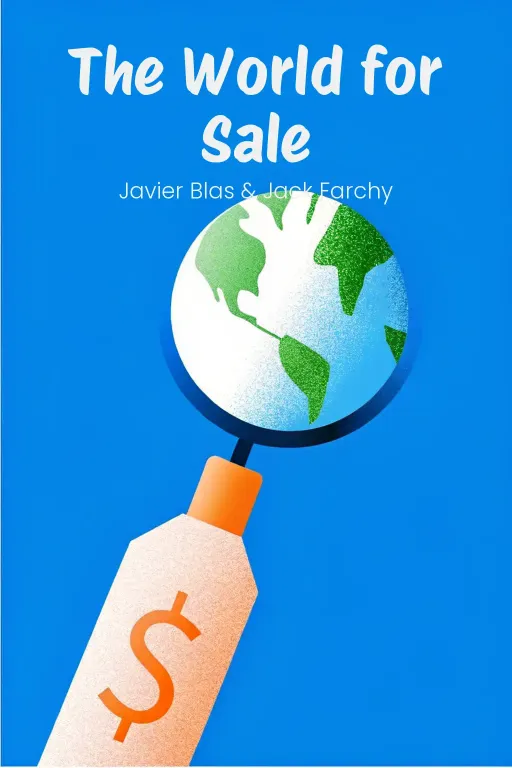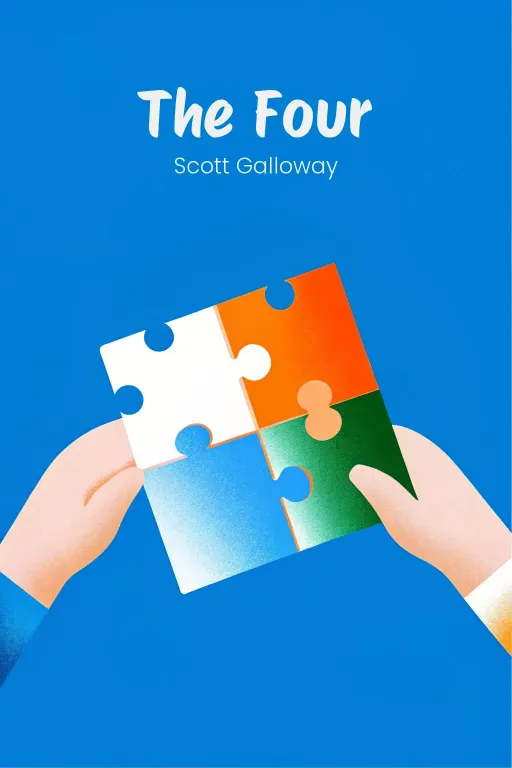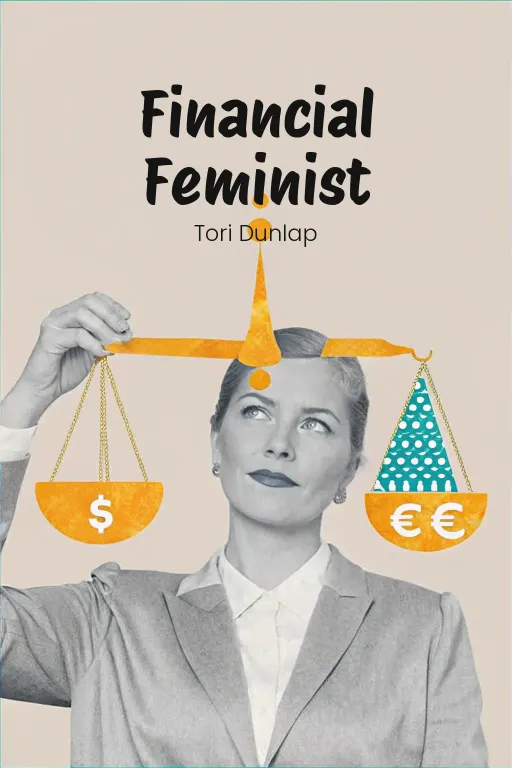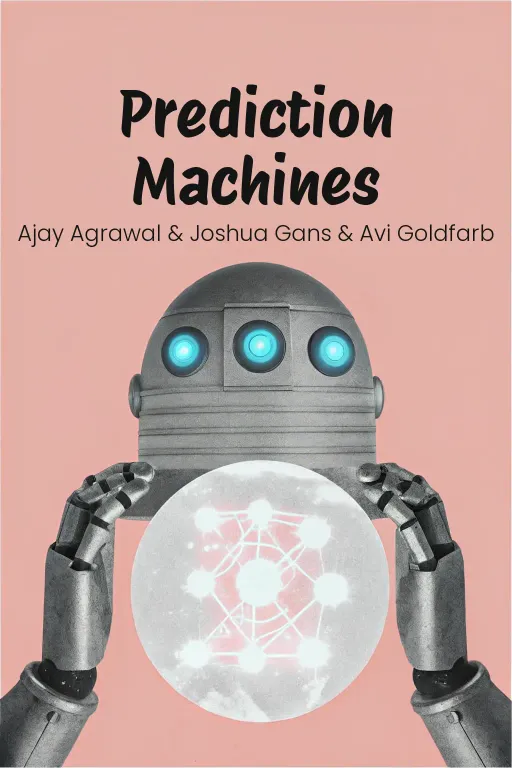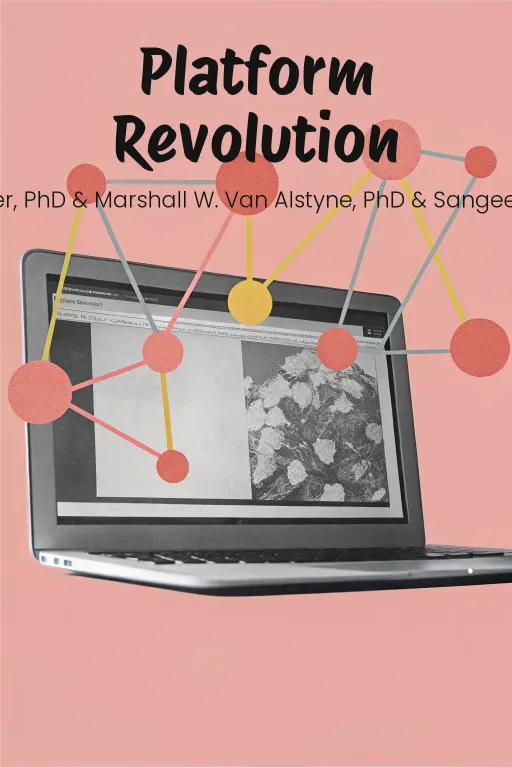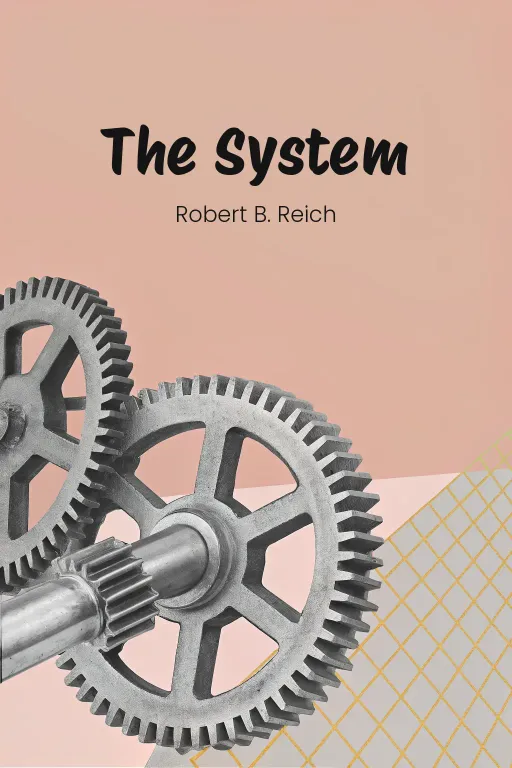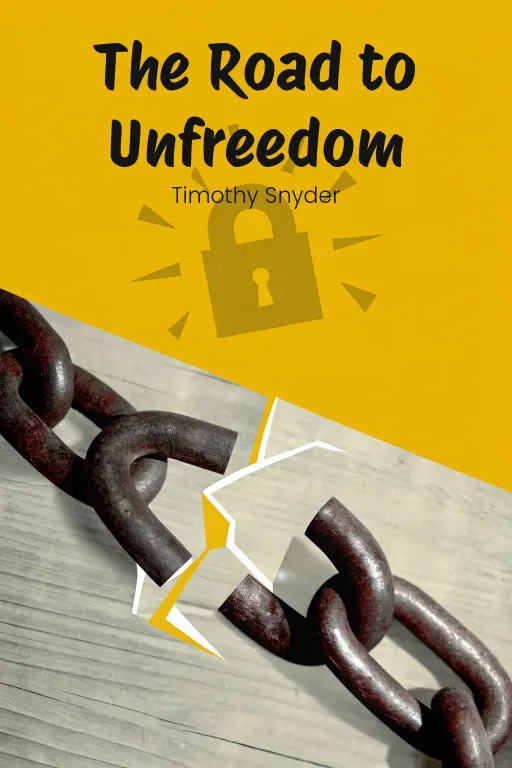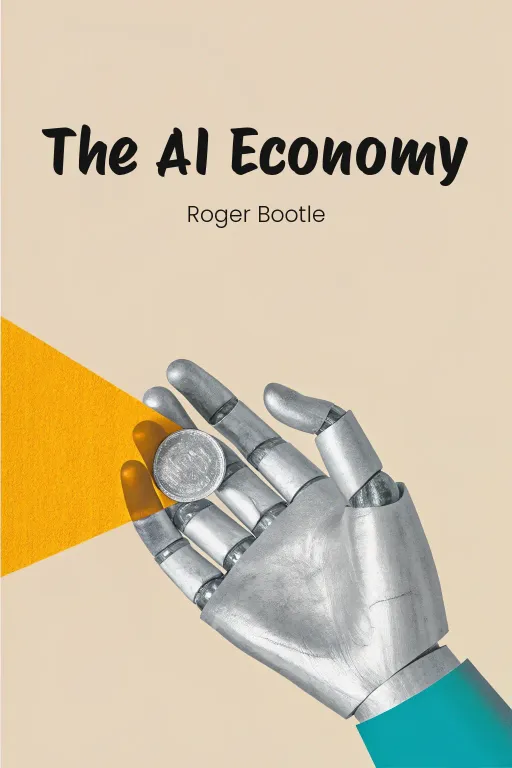
Profits & Planet: The Patagonia Playbook
Podcast by Let's Talk Money with Sophia and Daniel
The Education of a Reluctant Businessman
Profits & Planet: The Patagonia Playbook
Part 1
Daniel: Hey everyone, welcome to the show! Today, we're jumping into a story that’s both incredibly inspiring and totally relevant to, well, pretty much everyone. When was the last time you actually stopped to consider the ethics behind your clothes, or the real impact those brands you love have on our planet, huh? Sophia: Right, or even better, when did you last imagine a CEO telling his employees to drop everything and go surfing because the waves were that good? Seriously, this isn’t your typical corporate playbook. Daniel: Exactly! We’re talking about "Let My People Go Surfing," the memoir and basically the manifesto of Yvon Chouinard, the founder of Patagonia. It's not just about building a successful business, you see, it's about, fundamentally, changing the whole game. Chouinard beautifully blends his own remarkable journey with Patagonia’s core mission, exploring exactly how you can harmonize making a profit with protecting our environment, how authentic leadership can boost innovation in the workplace, and how activism can truly drive change in the world. Sophia: And that’s where things get “really” interesting, right? Today, we're going to dissect this into three key ideas. First, Patagonia’s whole perspective on environmental sustainability. Seriously, what other company makes you feel guilty for not repairing that old jacket instead of just buying a brand new one? Daniel: I know, right? Next, we're diving into their employee-first culture. Can you imagine a workplace where you’re actively encouraged to skip a meeting for some personal development or to spend time with your family? Patagonia actually made it happen. Sophia: And finally, we’re looking at their unapologetically bold activism. They’re not afraid to stir things up, from actually suing the U.S. government to taking a firm stand against over-the-top consumerism, and all while proving that businesses “really” can be a force for good. Daniel: So, whether you're an entrepreneur, a conscious consumer, or simply trying to figure out how to make your nine-to-five a little less… soul-crushing, you’ll definitely want to stick around. We're going to break down the philosophies of this utterly revolutionary company. Sophia: Yeah, let’s see if Chouinard’s ideals are really just for those super-hardcore mountain climbers, or if there’s something in there for us regular, desk-bound mortals, too.
Environmental Stewardship in Business
Part 2
Daniel: Alright, let's jump right into Patagonia's take on environmental sustainability. You know, most companies see success as just raking in the profits, no matter what. But Patagonia? They're playing a different game. It's about making money, sure but without wrecking the planet in the process. Their motto, “cause no unnecessary harm,” that's where it all starts. Sophia: "No unnecessary harm," huh? Sounds good on paper, Daniel. But is there really such a thing as "necessary" harm when it comes to business? Or is this just a clever way to say, “Hey, we're trying, but let's face it, we're going to make a bit of a mess”? Daniel: Well, in Patagonia's world, "necessary harm" is about being real. They know that making clothes and gear means using resources. The difference is they're “really” trying to cut that harm down, every step of the way. Take their switch to organic cotton, for example. It wasn't just some marketing trick. It was a total change in how they did things. Sophia: Yeah, that organic cotton thing is harder than people realize. Regular cotton might feel nice, but it's loaded with pesticides. I think you mentioned that conventional cotton farming uses, like, a quarter of the world's insecticides and a tenth of the pesticides? That's wild. And think about who pays the price for all that? Local ecosystems, the communities living near those farms, even us, down the line, with polluted water and toxic stuff in our food. Daniel: Exactly. And Patagonia stepped up. They didn't just quietly switch materials and slap an "eco-friendly" label on things. They went after the whole supply chain. They picked farmers willing to go organic and stuck with them through the tough transition period before their crops could be certified. Sophia: That must've been a blast, right? Their suppliers must have been scratching their heads, wondering what "organic" even meant. Daniel: Oh, it was a learning curve for everyone, and it wasn't cheap. Organic cotton is way more expensive to produce. Switching meant cutting ties with suppliers, rethinking product lines, and basically taking risks most companies would run from. But Patagonia saw no other way. Yvon Chouinard himself says that if you don't adapt and put the planet first, you're not just hurting the Earth, you're hurting your business in the long run. Sophia: Okay, so they ate the higher costs and passed them on to us, right? But let's be honest, how many people are thrilled to pay more for a T-shirt, even if it's, like, super organic? Daniel: Here's the thing. They didn't just use price tags to tell the story. They started a conversation with their customers. They explained why they were making the change, showing them the ugly side of regular cotton. It wasn't just about selling shirts anymore; it was about getting people to rethink how they consume. And guess what? People bought into it. Sophia: Of course, because when you make people feel like they're part of the solution, you're selling more than just a product. You're selling a whole identity, a lifestyle. Still, I'm wondering... did it actually work? I mean, enough to make a real difference, beyond just good PR? Daniel: Absolutely. Patagonia doesn't just talk about environmental goals, they live by them. Ditching regular cotton had a ripple effect across the industry. Other companies noticed. Suddenly, organic materials weren't just for niche brands or outdoorsy types. They became a real topic of conversation in the mainstream. Sophia: And they didn't stop there, did they? The organic cotton thing opened the door for stuff like recycled polyester. That's the crazy part – taking plastic bottles and turning them into fleece jackets. It's a great example of turning trash into something useful, instead of just piling more garbage into landfills. Daniel: Exactly, a "closed-loop system" in action. They're trying to keep materials circulating, so we don't need to keep taking from the Earth. It's a practical way to deal with the mountains of waste we create as consumers. And get this, Sophia: programs like their Common Threads Recycling Program go even further. They invite customers to send back their worn-out Patagonia gear so they can turn it into new fibers. Sophia: Now that's bold. You're basically telling your customers, “Buy less, fix what you have, and give it back to us when you're done so we can reuse it." Daniel: And it works because it fits with what they're saying. Patagonia isn't afraid to push back against over-consumption, even if it means people buy less from them. It's not the usual way of doing things, but it shows they're genuine. Customers respect that. Sophia: Alright, I'll give you that. There's something refreshing about a company that puts honesty over short-term sales goals. But doesn't fighting over-consumption shrink their market in the long run? How do they grow in that kind of model? Daniel: That's the cool thing. Patagonia challenges the idea that growth always has to be huge. They push for responsible growth instead, limiting expansion when it doesn't fit with their core principles. Sure, it might shrink their potential market, but they gain trust, loyalty, and they inspire action way beyond their own brand. Sophia: And that's the new definition of success they're betting on – moving the needle on environmental responsibility while changing what it means to "win" in business.
Employee-Centric Work Culture
Part 3
Daniel: So, sticking with this idea of redefining success, Patagonia’s commitment to sustainability isn’t just about the environment, it also shapes how they treat their employees and the unique culture they've built. Sophia: Right. It all seems interconnected there. So, tell me more. What is it about Patagonia's internal culture that makes it so different? We're not just talking about free coffee and casual Fridays, are we? Daniel: Oh, absolutely not! It’s much more fundamental. Their workplace culture flows directly from Yvon Chouinard’s vision in “Let My People Go Surfing”. They really believe that work should enrich your life, not take it over. That’s the core principle. Sophia: Okay, fair enough. So, what are some specifics? What makes Patagonia so different from other workplaces? Daniel: Well, let’s start with the policy that inspired the book title “Let My People Go Surfing”. Patagonia employees are literally encouraged to step away from their desks during the workday and go enjoy nature. Surfing, hiking, climbing – whatever inspires them. The idea is pretty simple, really: connecting with nature fuels creativity and recharges you. Sophia: Right, I can already imagine the HR departments in some companies having a meltdown if employees suddenly disappeared to catch some waves mid-project! But does this “really” work as a business strategy? Or is it more of a perk, you know, that just looks good in a recruitment video? Daniel: It's way more than a perk. Over the years, they've built incredible employee loyalty and engagement, largely because of policies like this. People feel valued as individuals, not just cogs in a machine. That translates to higher productivity and innovation. And let's be real, creating a workplace people “want” to be in is a competitive advantage. Sophia: Have they actually “measured” this? I mean, a lot of companies talk about employee happiness, but without data, it's just talk, right? Daniel: Definitely. Look at their employee retention rate after parental leave, for instance. It’s like 99%, which is crazy high compared to the U.S. average. One big reason is their on-site childcare program. At their Ventura headquarters, employees can bring their kids to work, knowing they’re in a quality center just steps away. Sophia: That's smart. More than convenience, it's a morale booster, right? Parents don’t have to stress about daycare drop-offs or whether their kids are being taken care of. Daniel: Exactly! It’s a win-win. One employee shared how the childcare center allowed switching between "professional" and "parent" during the day, which made balancing it all so much easier. As a result, they stayed with the company and did well in their role because they felt supported. Sophia: Right, that's a world away from companies that slap "work-life balance" on the wall and call it a day. But does this model come at a cost? Running an on-site childcare center, flexible schedules... it’s not cheap. Daniel: True, it’s an investment. But Patagonia sees it as part of who they are—creating a workplace where people can be their best selves. And there's a return. Valued employees are more committed, reducing turnover and those high costs of hiring and training. Sophia: And let's not forget the environmental piece of on-site childcare, right? Less commuting for employees translates to fewer emissions. So, it's another way they integrated sustainability into everyday operations. Daniel: Exactly. Sustainability at Patagonia isn't just about recycling or product innovation—it's woven into how their employees live and work. And it carries over into their hiring practices. They actively look for people who already care about their environmental mission. Many employees there are surfers, climbers, activists—people whose personal values align with the company. Sophia: Right, so it’s not about the resume. They’re looking for folks who believe in the mission, not just the paycheck. Daniel: Precisely. It creates a unified culture. Employees see their work as part of something bigger than just quarterly goals, but contributing to a movement, a lifestyle that prioritizes sustainability and activism. Sophia: Okay, but let me play devil’s advocate for a moment. Is there a danger that this enthusiasm could turn into an "echo chamber?" If everyone thinks the same way, wouldn’t it stifle different ideas? Daniel: That’s fair. But Patagonia makes sure to foster open dialogue and collaboration. It’s about shared values as a foundation for innovation, not groupthink. Employees are encouraged to challenge ideas and find new solutions, especially in sustainability where creativity is key. Sophia: Got it. And they don’t just encourage internal growth, right? I understand employees get time off to volunteer for environmental causes. That’s a pretty bold move. Daniel: Absolutely. Patagonia gives employees time off to work on conservation projects or attend activism workshops. It reinforces the connection between personal growth and professional purpose. They don't just feel like they're working for a company; they feel like they're part of a movement. Sophia: That’s a huge difference. If people see their work as beyond just clocking in and out, it transforms the whole relationship with their job—and the commitment they put into it. Daniel: Exactly. That's why Patagonia’s workplace culture is so great. By aligning their employee practices with their values, they challenge conventional norms. It's not just about improving work-life balance. It's about proving that when businesses put people and the planet first, profits—and loyalty—follow.
Grassroots Activism and Corporate Responsibility
Part 4
Daniel: Beyond just internal stuff, and this is where it gets “really” interesting, Patagonia's activism shows how companies can do more than just be sustainable … they can actually drive societal change. Sophia: Right, so we're talking grassroots activism and corporate responsibility here. It's not just "going green" as a business, is it? Daniel: Exactly! Patagonia's really redefined what it means for a corporation to engage with the world. They've built a model where the company is a bridge between making money, and fighting for environmental justice. Sophia: Okay, so we're talking big picture here. We’re moving from Patagonia's internal policies to their societal perspective—how they’re shaping a sustainable future beyond their own walls. They're not just preserving ecosystems, but actively challenging industrial norms and empowering local communities to stand up for the planet, huh? Daniel: Precisely. What’s key is their strategic investment in grassroots activism. Big corporations often end up supporting big-name NGOs or global campaigns, right? But what sets Patagonia apart is their focus on backing small, local efforts that truly understand the history and culture of the areas they're trying to protect. Sophia: I see what you mean. A company that size could just write a check and walk away, but instead, Patagonia gets involved in these very local campaigns. It feels more personal. So, what kind of tools does Patagonia bring to the table in these partnerships? Daniel: Well, a prime example is "1% for the Planet." Launched back in 2001, it commits businesses to donate at least 1% of their annual sales – not just profits, sales – to support environmental nonprofits. This isn't just about handing out money randomly, it's about creating a stable, reliable source of funding for grassroots causes. Sophia: Wait a minute, 1% of “sales”? That's a pretty big difference. Most corporate philanthropy comes from profits, which can be unpredictable, right? But Patagonia’s literally tying their commitment to their revenue, which fluctuates less. That’s a big deal for long-term planning. Daniel: Exactly. It gives grassroots organizations the financial stability to focus on their work, instead of constantly chasing funding. And it's not just about the money. Patagonia also strengthens these initiatives through education. Their "Tools for Grassroots Activists" conferences provide training in skills like communication, organizing, and fundraising. Tailored specifically for activists on the front lines. Sophia: So, they’re not just saying, "Here's some cash, good luck saving the trees." They’re actively equipping people with the know-how to boost their impact. That's clever, I have to admit. Daniel: And transformative, too. Imagine you're a small community leader, working tirelessly to protect a rainforest or a watershed, often feeling alone or under-resourced. And then, you attend a conference filled with people who face similar challenges, exchanging strategies, and learning how to amplify your voice. Sophia: Yeah, alright, that actually sounds empowering. But does all this theory really work in practice? Can you give me an example of how this played out? Daniel: Absolutely. One of the most powerful examples is Patagonia’s involvement in the Kitlope Valley conservation. The Kitlope Valley, in British Columbia, is the world's largest intact temperate rainforest. It's filled with ancient glaciers, towering mountains, and some of the oldest, most untouched ecosystems on Earth. Sophia: Pristine enough to be narrated by David Attenborough himself, I imagine. But let me guess – there were loggers at the gates, chainsaws revving, right? Daniel: Pretty much. In the spring of 1990, local fishing guides found plans for industrial logging in the valley. The logging industry argued that the economic benefits would be huge – jobs, development, and over $100 million in potential revenue for the Indigenous Haisla Nation, whose ancestral lands include the Kitlope watershed. Sophia: Ah, the classic dilemma: a quick economic boost versus long-term environmental and cultural preservation. And the Haisla said...? Daniel: No. Despite all the potential benefits, they chose stewardship over exploitation. They refused to trade their heritage and environmental integrity for short-term gains. But here's where Patagonia comes in. Sophia: Let me guess – pipeline protests, celebrity endorsements, maybe a flash mob or two? Daniel: Not exactly. Patagonia understood that to build support, the Kitlope needed a compelling story. So, they stepped in to fund aerial photography campaigns, capturing the valley's breathtaking scale and beauty. Yvon Chouinard himself got involved, connecting directly with local activists and making sure the campaign reached international audiences. Sophia: Smart move. We're visual creatures, after all. You can tell someone a forest is worth saving, but if you show them those ancient trees from 2,000 feet up, shrouded in mist? That has some impact. Daniel: It really did. Public awareness skyrocketed. The photos transformed the Kitlope from a local issue into a global cause. Soon, the timber companies, facing increasing public pressure, gave up their logging rights. In the end, the Kitlope was not only protected but it also became the foundation for the Na'na'kila Institute, an organization dedicated to cultural and environmental preservation. Sophia: Okay, that’s impressive. You've got a corporation, local activism, and Indigenous leadership all working together. And the result wasn't just about stopping loggers – it created lasting institutions. Daniel: It's a perfect example of how grassroots activism can thrive when given the right resources. Patagonia’s role wasn't to lead, it was to amplify and support those already on the ground. That respects local expertise while leveraging corporate influence. Sophia: And it's efficient, too. You're not wasting resources on bureaucratic overhead, but putting power directly into the hands of people who know what solutions work for their communities. Daniel: Exactly. And it sets an important precedent for corporate responsibility. This isn't about charity or ticking off a "social good" checklist. It's about committing to systemic change by empowering those willing to fight for it. Sophia: And that's the big takeaway, right? It's not just how Patagonia operates, but why. They’re proving that a business doesn’t have to be a bystander. It can be an active participant in reshaping the future, wouldn't you agree?
Conclusion
Part 5
Daniel: Okay, let's wrap things up. Today, we've really dug into Patagonia's game-changing approach to business, looking at it through three really powerful ideas. First, their unwavering dedication to the environment. I mean, from being pioneers in organic cotton to creating a closed-loop system… they’re really challenging the whole idea of waste. Sophia: Right, and then we talked about their employee-first philosophy, where work-life balance isn’t just some fantasy. It’s real. Like, trading boardrooms for climbing walls, or having your kids right there with you in on-site childcare. Makes sense, happy employees. Daniel: Exactly! And finally, their unapologetic activism. I mean, from funding grassroots movements through 1% for the Planet to partnering with local communities in conservation battles, they show how businesses can really drive positive change. Sophia: But here’s the thing, Patagonia isn’t just saying, "Hey, look at us!" By sharing their blueprint through initiatives, products, and their influence, they’re inviting all of us—businesses and individuals alike—to rethink what responsibility looks like. Daniel: Precisely. The challenge Yvon Chouinard leaves us with is: how can we align our lives, our careers, and even the brands we support with the values we wish to see in the world? Patagonia isn’t perfect, but they prove that progress is possible when you dare to put purpose first. Sophia: So, here’s your mission, should you choose to accept it. Take a good look at your choices. The brands you buy, the places you work, or the communities you support. Small shifts in how we live and spend… they can have a huge impact, rippling outwards. Daniel: Because in the end, sustainability isn't just a business strategy, right? It’s a shared thing. It's a movement, a mindset. Sophia: Alright, Sophia, signing off. Daniel: And Daniel here. Let’s all find ways to care a bit more, consume a bit less, and maybe, just maybe, catch a wave or two along the way. Catch you next time!
